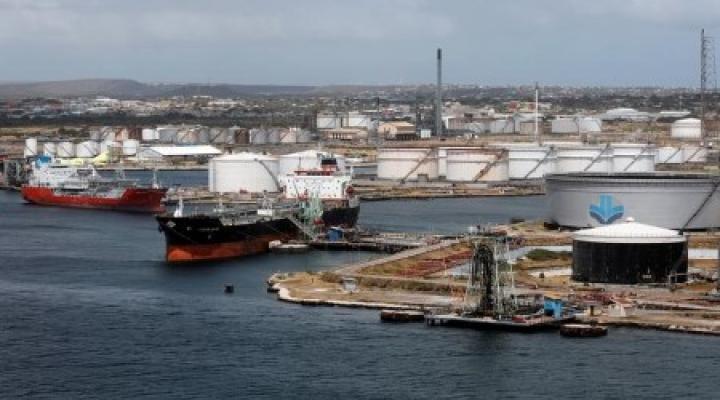MARACAY, Venezuela/DUBAI – Venezuela has begun preparations to distribute fuel imported from Iran among desperate citizens as the fourth cargo of a five-tanker flotilla was crossing the Caribbean on Wednesday, according to Refinitiv Eikon and a government official.

Source: Reuters
Iran is providing the South American country with up to 1.53 million barrels of gasoline and components to help it ease an acute scarcity that has forced Venezuelans to wait for hours in lines at service stations.
As the tanker Faxon was navigating through the Caribbean Sea, the third vessel of the flotilla, the Petunia, was approaching El Palito refinery, where the first vessel, the Fortune, has been docked since Monday. The second cargo, on vessel Forest, has been discharging at the Cardon refinery since Tuesday, according to the Eikon data.
While applauded by the Venezuelan government, the Iranian supply has been criticized by U.S. authorities as both OPEC-member countries are under sanctions. The vessels have so far navigated undisturbed to their destinations.
David Schenker, the U.S. assistant secretary of state for Near Eastern affairs, said on Wednesday that Washington was “not pleased” with the shipments and was looking at “options” for a response.
“These are two pariah states,” Schenker said during a webinar organized by the Beirut Institute. “One could imagine them sending other things, I mean weapons, who knows.”
Formally, Venezuela has the world’s cheapest gasoline after over two decades of frozen prices at the pump, but insufficient distribution has created a black market where a liter is offered for at least $2.
Diosdado Cabello, president of Venezuela’s Constituent National Assembly, a parallel legislative body formed by President Nicolas Maduro’s allies, distributed a message among governors late on Tuesday asking them for support for a new fuel supply system.
“We will increase distribution,” he said to explain a plan drafted earlier by Maduro to secure and supervise supply to service stations through satellite monitoring. People will also pay for gasoline in a new way, he suggested, without elaborating on details.
In recent weeks, more than 100 service stations across the country have received new equipment that would allow them to charge for gasoline, though their operators have not yet received clear instructions from the government or state-run oil company PDVSA, two people familiar with the matter said.
Maduro in 2018 had pledged to increase prices at the pump, but never went through with the plan. Ending fuel subsidies is seen as politically risky in Venezuela, where a 1989 effort to raise gasoline and transportation prices contributed to a deadly wave of riots and looting.

